The Anglican Church of Canada is devoted to championing the marginalised in our society. Before anyone hastily jumps to the conclusion that the ACoC is against murdering babies in the womb, let me reassure your that they are not that prophetic. The ACoC prefers to campaign on behalf of LGBTQ (you can add any more characters, including special or numeric characters, that you like – it’s a bit like choosing a new password) individuals. The “T” for Transgender, is an interesting one. What would our learned bishops who, in addition to the L,Q,G and Bs, support and affirm the Ts because they are too cowardly not to, make of this?
From here:
There’s an important category in logic known as reductio ad absurdum, according to which you contradict an argument by showing that its general application will produce absurd results. It has been in my mind over the past fortnight or so, as I’ve followed a human-rights tribunal in British Columbia, Canada, and watched it deal with complaints made by trans woman Jessica Yaniv (or “Jonathan Yaniv”: The person apparently goes by both names) against three aestheticians. When it comes to the notion that “gender identity”—the self-declared, subjective feeling of being a man or woman—can reasonably be taken to trump biological sex in law and daily life, Yaniv presents us with a reductio ad absurdum on two legs.
For those who have not been following the case (which, oddly, has been covered by the international media, but mostly ignored by Canada’s own press), the details will sound unbelievable. Last year, Yaniv used social media to contact 16 female aestheticians in the Vancouver area, most working out of their own homes, who advertized Brazilian waxing—the removal of some or all of a woman’s pubic hair by applying and then yanking off strips of heated wax.
Sometimes, Yaniv would use the name Jonathan and a clearly male profile pic. Only then, upon being told that Brazilian waxing is for women only, would Yaniv reply to the effect of “I am trans.” The women would then convey that they were unwilling or unqualified to wax male genitalia. At this point, Yaniv would put in a complaint to the human-rights tribunal, alleging discrimination on the basis of gender identity, a protected characteristic under British Columbia’s human-rights code.


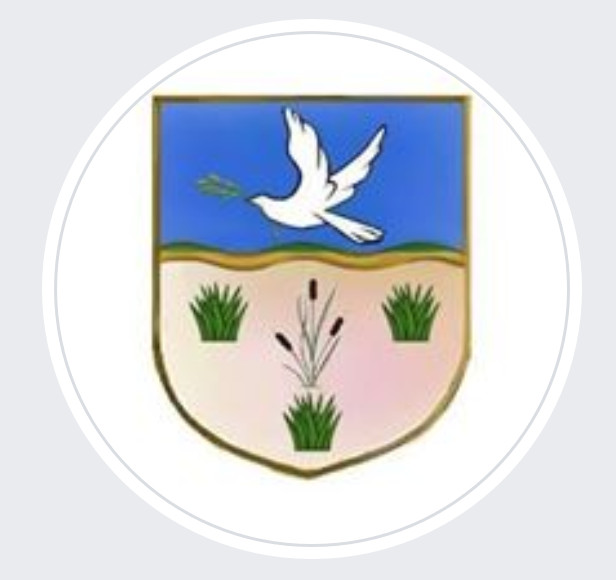 The one item of discussion that drew most of the attention and energy was the second reading of proposed changes to Canon XXl (the Marriage Canon). A change to this canon requires passage by a 2/3 majority in each of the orders (laity, clergy, and bishops) voting separately at two successive general synods. The proposed change achieved this in 2016 and thus was presented for the second time on July 12th. The resolution failed to pass in the Order of Bishops and was therefore defeated. This means the canon has not changed, and the church did not decide to part ways with the church’s doctrine. As had been foreseen, both the consideration and decision were very difficult and brought pain to those involved and those affected. The day before the resolution was considered, a “Word to the Church” from the Council of General Synod was adopted by the meeting, and this was reflected in a statement issued from the bishops on the Monday following the vote. These both recognize that we do not have unity in our thinking about marriage, understanding of scripture, or pastoral response. These also indicate a commitment to work together and to treat one another with dignity. These statements include an acknowledgement that some bishops, with their dioceses, have chosen to allow for some expression of same-sex marriage (what has been called “local option”). While some have interpreted this as affirmation or endorsement of “local option”, this is not accurate. The Diocese of Athabasca will continue to live within the bounds of the current canon and doctrine of the Church Catholic. While doing so, it is with the expectation that every person who comes to the church or who we encounter is treated with grace and honour. All who wish to live as disciples of Jesus are welcome as part of our Christian family.
The one item of discussion that drew most of the attention and energy was the second reading of proposed changes to Canon XXl (the Marriage Canon). A change to this canon requires passage by a 2/3 majority in each of the orders (laity, clergy, and bishops) voting separately at two successive general synods. The proposed change achieved this in 2016 and thus was presented for the second time on July 12th. The resolution failed to pass in the Order of Bishops and was therefore defeated. This means the canon has not changed, and the church did not decide to part ways with the church’s doctrine. As had been foreseen, both the consideration and decision were very difficult and brought pain to those involved and those affected. The day before the resolution was considered, a “Word to the Church” from the Council of General Synod was adopted by the meeting, and this was reflected in a statement issued from the bishops on the Monday following the vote. These both recognize that we do not have unity in our thinking about marriage, understanding of scripture, or pastoral response. These also indicate a commitment to work together and to treat one another with dignity. These statements include an acknowledgement that some bishops, with their dioceses, have chosen to allow for some expression of same-sex marriage (what has been called “local option”). While some have interpreted this as affirmation or endorsement of “local option”, this is not accurate. The Diocese of Athabasca will continue to live within the bounds of the current canon and doctrine of the Church Catholic. While doing so, it is with the expectation that every person who comes to the church or who we encounter is treated with grace and honour. All who wish to live as disciples of Jesus are welcome as part of our Christian family.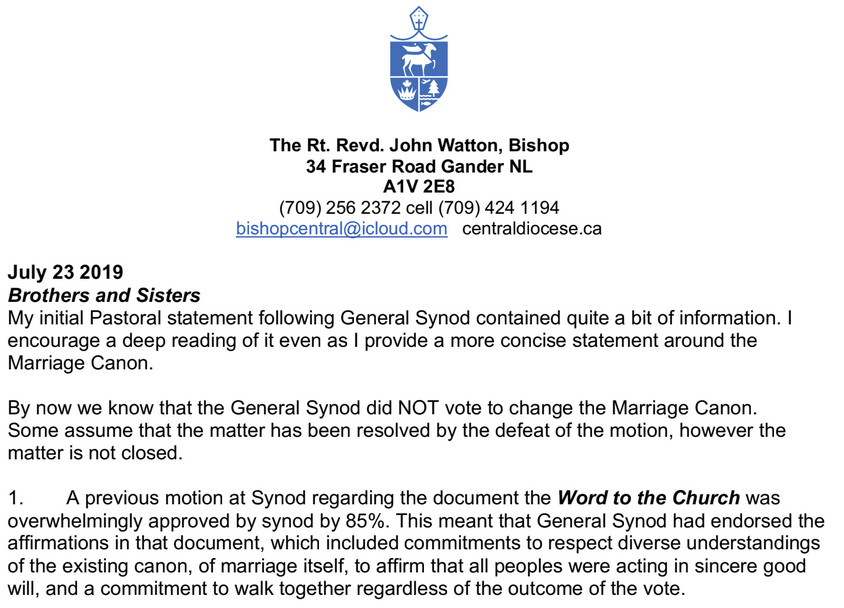
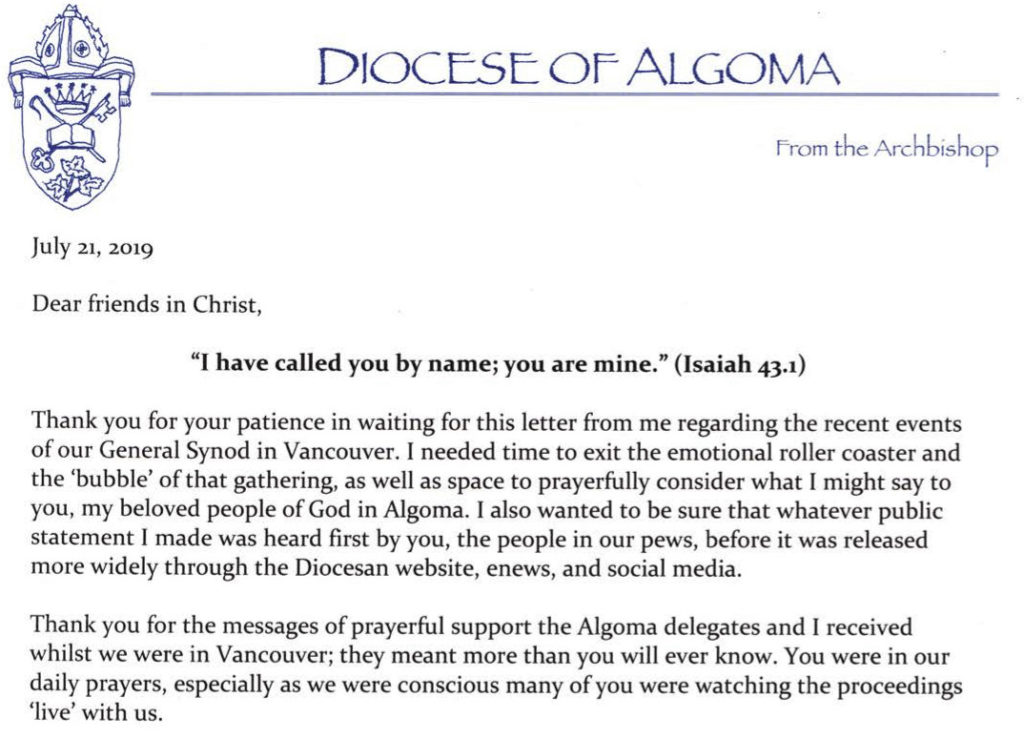
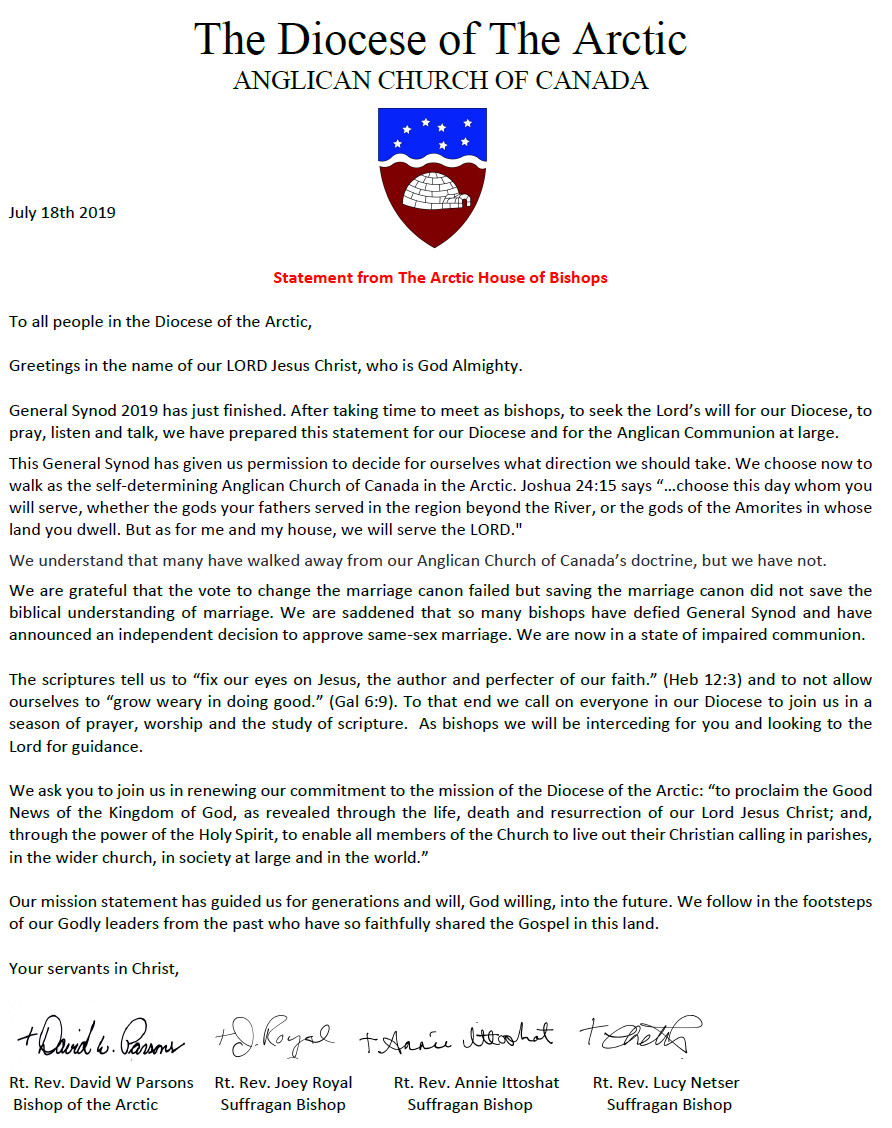
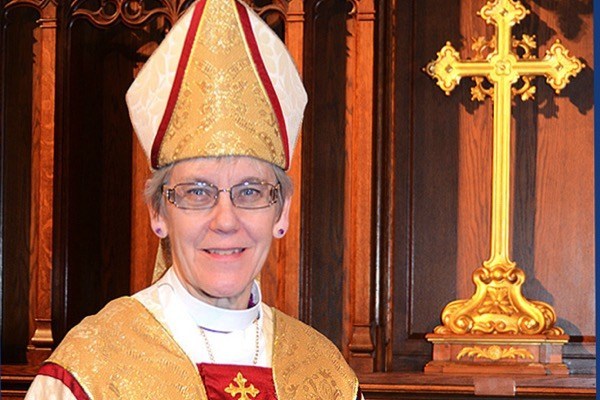 Given the strong support in Huron for this possibility, as of August 1, 2019, I am authorizing the availability of marriage to same-sex couples as a pastoral local option under the following guidelines:
Given the strong support in Huron for this possibility, as of August 1, 2019, I am authorizing the availability of marriage to same-sex couples as a pastoral local option under the following guidelines: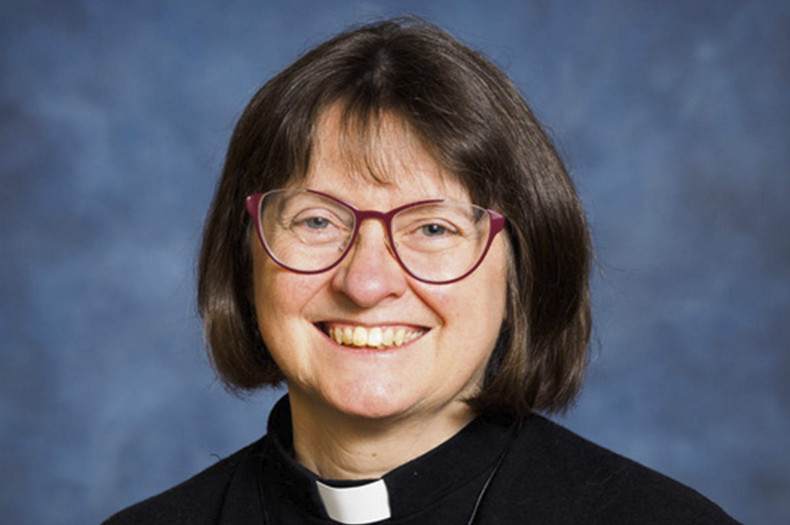 Rev. Dr. Lynne McNaughton, elected as Bishop to the Anglican Diocese of Kootenay, to which Cranbrook belongs, earlier this year, will also be issuing a joint statement with other bishops who have affirmed all of this. Additionally, she will be going ahead to authorize same-gender marriage within the Diocese of the Kootenay.
Rev. Dr. Lynne McNaughton, elected as Bishop to the Anglican Diocese of Kootenay, to which Cranbrook belongs, earlier this year, will also be issuing a joint statement with other bishops who have affirmed all of this. Additionally, she will be going ahead to authorize same-gender marriage within the Diocese of the Kootenay.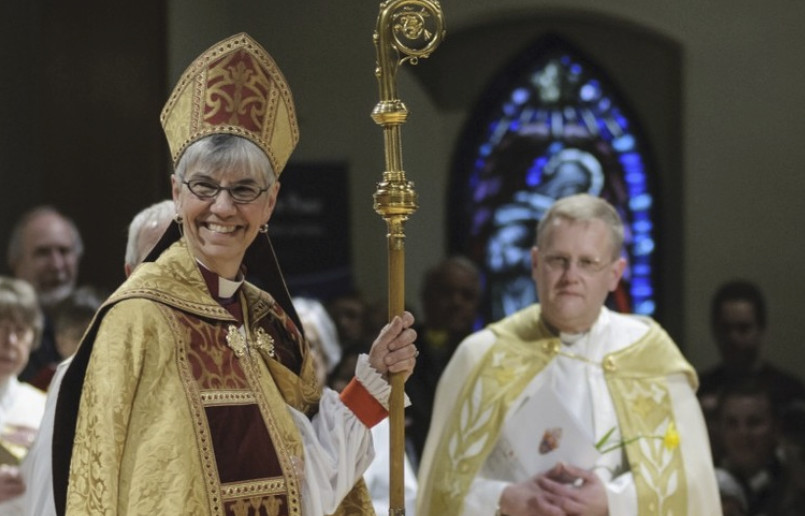 As of August 1, 2019 , I will authorize a liturgy for the marriage of same-sex couples within the Diocese of New Westminster under the following conditions:
As of August 1, 2019 , I will authorize a liturgy for the marriage of same-sex couples within the Diocese of New Westminster under the following conditions: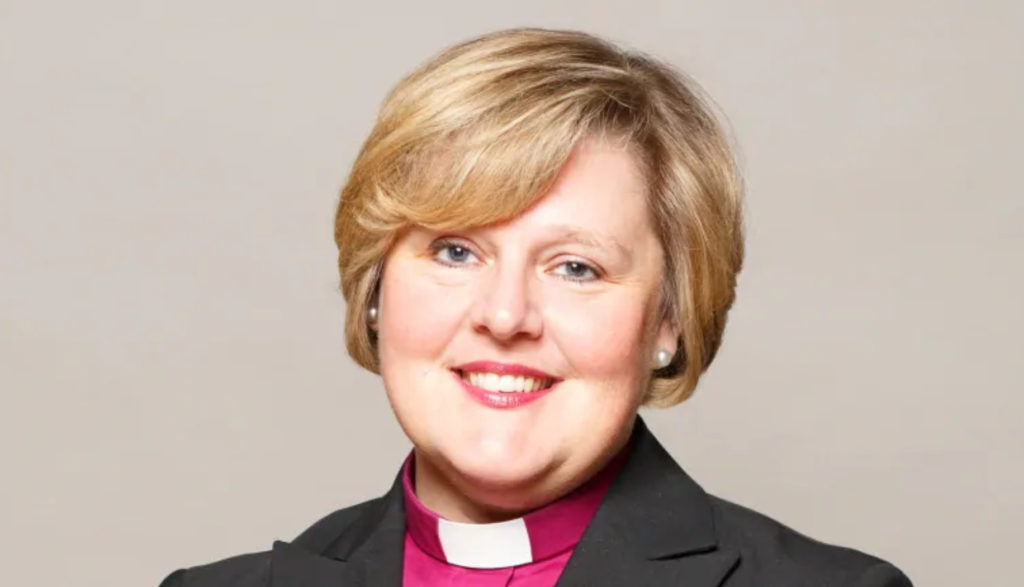 The bishop of Diocese of Niagara says she isn’t surprised the Anglican Church of Canada voted against recognizing same-sex marriage.
The bishop of Diocese of Niagara says she isn’t surprised the Anglican Church of Canada voted against recognizing same-sex marriage. July 17, 2019
July 17, 2019